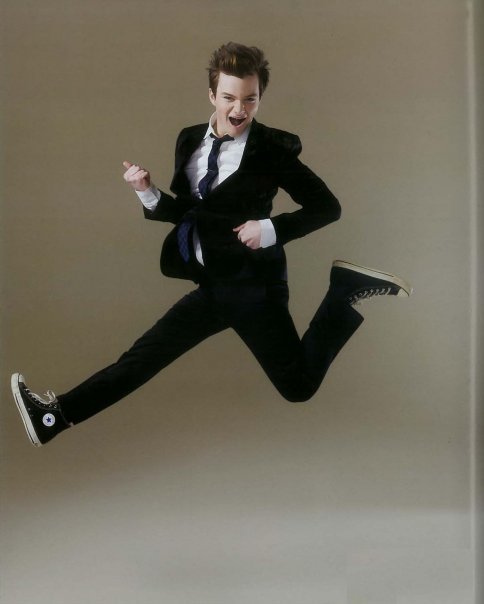Last Sunday, my partner and I hosted our annual Golden Globes party. Usually, my favorite part of this event is watching the stars walk the red carpet as we provide amateur fashion critiques. But this year, I was much more intrigued by how the awards reflected the progress of LGBT Americans – and how far we still have to go.
One of the first awards went to Chris Colfer, an openly gay actor who plays a gay high school student on the television show Glee. He closed his acceptance speech by giving a powerful statement against anti-LGBT bullying: “Most importantly, to all the amazing kids that watch our show and the kids that our show celebrates, who are constantly told ‘no’ by the people in their environments, by bullies at school that they can’t be who they are or have what they want because of who they are. Well, screw that, kids!”
Soon after, Jane Lynch won an acting award. Lynch, another openly gay actor who appears on Glee, ended her acceptance speech by sending her love to her wife and their children.
Then the film The Kids Are All Right, which depicts a married lesbian couple and their family, won two major awards: An acting award for Annette Bening and the award for Best Musical or Comedy.
As I watched award after award go to LGBT actors and films, I remembered how I’d felt as a gay teenager in the 1980s, growing up in a small town in Wisconsin. I would spend hours combing the local video store, trying without success to find even one movie that might help me understand who I was.
I also thought back to 1997, when Ellen DeGeneres came out on her TV sitcom. It was a huge event; Ellen was on the cover of Time Magazine, advertisers pulled out of the show, and the network put a parental advisory on the episode. I was in law school at the time, and our tiny LGBT law student group got together for a viewing party. We literally jumped out of our seats and screamed when Ellen said “I’m gay” on national TV. It was that important – and still that rare – for us to see an openly gay person in pop culture.
Of course, increased visibility does not mean equality. Jane Lynch can thank her wife on national TV, but her marriage is recognized in only a handful of states. The Kids Are All Right reflects how common LGBT parents have become, yet many states still fail to provide any legal recognition or protection for those families. And while Glee has helped build national awareness of the devastating impact of anti-LGBT bullying, schools remain unsafe for far too many students.
Still, I was thrilled to see what some have called the “Gay Globes.” You can’t achieve equality unless you can visualize it, and this show gave millions of viewers across the country a glimpse of what LGBT equality might look like.
Photo credit: Robert Todd Williamson for H Magazine






